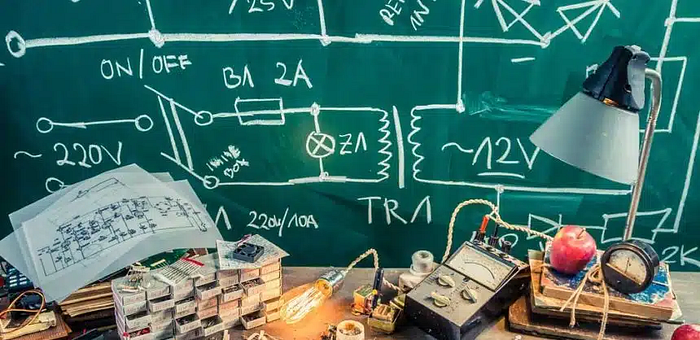Why Is Physics So Hard?
Why Is Physics So Hard?
Tips for Enhancing the Learning Experience

When conversing with many students about physics, the common refrain often heard is, ‘Physics is a challenging subject!’ But have you ever wondered why exactly physics is perceived as difficult?
Physics, as a science discipline, frequently carries the reputation of being more formidable than mathematics, chemistry, or calculus. This perception often leads students to procrastinate and avoid studying it. Even prolonged hours of study sometimes don’t seem to illuminate the concepts and numerical aspects. It may seem perplexing.However, it’s crucial to recognize that the difficulty lies not in the subject itself but in the approach to studying it. Many individuals, including your physics instructors, excel in this field. So, why can’t you? Believe it or not, the fundamental principles of physics are remarkably straightforward, provided you build your confidence in the subject.
If you’re a student seeking to understand why physics can be challenging and how to enhance your mastery of it, you’re in the right place. We’re here to address all your inquiries
Why do students perceive physics as a difficult subject?
Learning physics can be a challenging and sometimes uninspiring experience. Have you ever wondered about the factors that contribute to this difficulty? Let’s demystify these reasons for you. Here are some prevalent factors that make learning physics a demanding endeavor:
- Enhanced Problem-Solving Skills: Physics demands advanced problem-solving abilities.
- Critical Thinking: Critical thinking is vital when tackling complex physics concepts.
- Mathematical Proficiency: Strong mathematical skills are necessary for solving physics equations and numerical problems.
- Understanding Theorems and Laws: A clear grasp of theorems and laws in physics is essential.
- Abstract Nature: Physics can be highly abstract, making it challenging to grasp.
- Drawing Skills: Proficiency in drawing and interpreting graphs and diagrams is required.
- Cumulative Learning: Physics is cumulative, meaning earlier concepts are fundamental to understanding subsequent topics.
- Complexity: Physics can involve intricate and experimental concepts.
- Formula-Based Calculations: Calculations and formulas in physics problems can be monotonous.
- Concept Confusion: Concepts like potential energy, kinetic energy, vector quantities, scalar quantities, and hand rules can be perplexing.
- Interdisciplinary: It blends computer science, mathematics, and basic science, making it intricate.
- Laws and Definitions: Countless laws and definitions need to be learned and memorized.
- Mathematical Tools: Concepts from geometry, algebra, and calculus are applied to solve physics problems.
- Graphical Interpretation: Translating graphs into mathematical forms is a common requirement.
What Is The Main Reason For Students Finding Physics Hard?
Beyond the challenges above, the instructional methods employed in educational institutions are a significant factor contributing to students finding physics challenging. Teaching physics can be as demanding as learning introductory physics itself. Therefore, educators must employ innovative strategies to sustain student engagement and interest.
Instead of solely concentrating on imparting theoretical concepts and overwhelming students with complex knowledge, teachers should strive to make physics enjoyable. They should establish connections between physics principles and real-life examples, facilitating a deeper comprehension of the issue. Furthermore, educators should provide assignments with reasonable timeframes, ensuring students do not perceive them as overwhelming tasks.
8 Effective Tips for Students to Enhance Their Enjoyment of Learning Physics
Having explored the reasons behind the challenges posed by physics, it’s time to delve into strategies for making this subject understandable but also engaging and enjoyable. As mentioned before, it’s not the subject but the approach to studying and teaching that can make all the difference. Are you curious about effective methods for studying physics? We’ve done the legwork for you.
Keep reading to discover these valuable insights!
1. Focus on Concepts
To truly grasp and comprehend physics effortlessly, it’s imperative to establish a solid foundation by mastering its fundamental concepts. Physics builds upon many laws and principles, with a single concept or law often applicable across numerous chapters.
To achieve this clarity, prioritize a deep understanding of these foundational concepts. Seek assistance from certified teachers, tutors, or individuals holding physics degrees. Additionally, you can use various online resources and lectures to enhance your comprehension of these core principles.
2. Understand all terms and Definitions
Physics encompasses a plethora of terms and definitions, including velocity, speed, area, volume, momentum, force, and more. To navigate physics seamlessly, it’s essential to familiarize yourself with and comprehend the definitions of these terms. Moreover, understanding the distinctions between these terms is equally crucial.Believe it or not, many of the challenges students encounter when learning and comprehending physics stem from a lack of familiarity with these fundamental physics terms.
3.Avoiding Rote Learning: A Better Approach to Learning
Rote learning is a deceptive trap and a student’s worst adversary. It can create an illusion of comprehension when, in truth, understanding remains elusive. To safeguard your learning journey, steer clear of rote memorization. Instead, direct your attention to the subject matter with a receptive and lucid mindset. Commence your preparations well before exams to alleviate the pressure and reduce the temptation to resort to rote learning.
4. Practice And Practice
Practice is invaluable, especially in the realms of physics and mathematics. The more physics numerical problems, equations, and challenges you tackle, the easier and more enjoyable they become. Furthermore, consistent practice serves a dual purpose: it enhances your problem-solving abilities and deepens your conceptual grasp. Through diligent practice, you’ll attain proficiency, gaining the confidence to tackle a wide array of questions.
5. Be An Active Listener
Believe it or not, most of your learning and knowledge acquisition occurs during classroom lectures. Consequently, attending every lecture and engaging actively with your teachers’ insights is of utmost importance. The more attentive you are, the deeper your comprehension will be. Taking detailed notes during class is also essential. These notes serve as valuable references for future understanding and quick information retrieval. Additionally, note-taking aids in memorization, contributing to a firmer grasp of the concepts.
6. Write What You Learn
Similar to note-taking, the act of writing what you are learning can solidify the concepts in your memory. During study sessions, simply keep a notebook and pen handy and transcribe the material you’re trying to grasp. For instance, learn a definition, close your book, and write it down from memory. Repeat this process for other concepts. You’ll find that this method enhances your memorization speed and retention. Additionally, it acts as a safeguard against forgetting what you’ve learned.
7.Improve Your Math Skills
Physics can often be perceived as challenging and uninteresting due to its significant mathematical components. Mathematics is not always a student’s favorite subject, but improving your math skills is crucial for excelling in physics. You can seek assistance from teachers, friends, or private tutors to strengthen your math abilities. It’s important to note that physics relies on specific branches of mathematics rather than the entire field. Here is a list of key math concepts you should enhance and practice to excel in physics:
- Algebra — essential for solving physics equations.
- Geometry — useful for understanding concepts like area and volume.
- Trigonometry — necessary for comprehending graphs, angles
8.Prepare Well For Exams
If you’re the type of student who habitually procrastinates until the last minute during exam season, it’s crucial to break that habit. It’s always advisable to commence exam preparations well in advance, ideally 2 or 3 months prior to the exam date. Last-minute cramming, attempting to absorb the entire syllabus the night before the exam, is not only impractical but also ineffective. Whatever you manage to learn under such pressure is often forgotten by the next morning.
In contrast, starting early provides ample time to thoroughly analyze and grasp the subject matter. It allows for self-assessment to identify areas that require further attention. Initiating preparations ahead of time also affords the opportunity to seek clarification from teachers or tutors when doubts arise. Additionally, we highly recommend practicing with a variety of physics past papers and practice exams to enhance your readiness.
Physics undoubtedly poses a formidable challenge, but it’s crucial to recognize that nothing is impossible, even the mastery of physics. The key lies in trusting and believing in yourself maintaining unwavering commitment and motivation. Additionally, prioritize building a solid foundation by starting with the basics before tackling the more intricate concepts.
We hope this post has provided insight into why physics can be challenging and how to overcome these difficulties. If you still need physics assistance, consider hiring a private tutor from our website. Our team comprises highly skilled and professional tutors ready to clarify concepts and address your doubts with expertise. Your ideal physics tutor is just a click away, so why wait?
